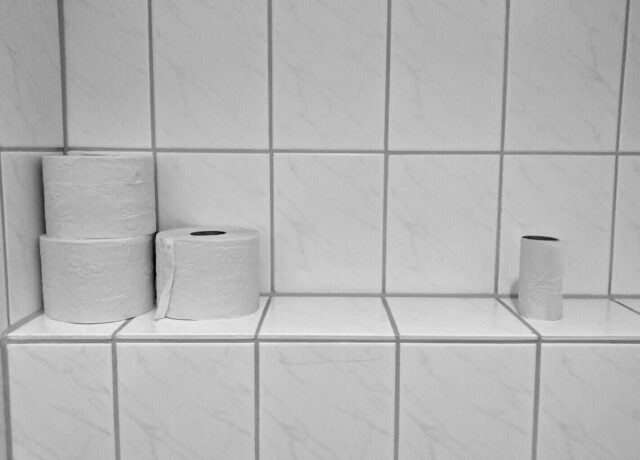If you’re a regular coffee drinker like us, coffee is more than just a pick-me-up from your local coffee shop on busy mornings or a boost of energy to get through an all-nighter. It’s a comforting way to start your day and a great-tasting way to wake up.
But all that caffeine can cause unwanted symptoms, from jitters to insomnia to caffeine withdrawal, headaches, and more. And as much as we love our daily cup (or three), it’s important to check in and monitor whether a caffeine habit is doing more harm than good.
If you’ve decided that it’s time to cut the caffeine, but you’re not ready to go a day without coffee, you may be considering decaffeinated coffee as the solution. Since it’s got less caffeine content, you can enjoy all the flavor and comfort of a cup of coffee without the nasty side effects.
So if you’re considering making the switch to decaf, you may be wondering if there are any drawbacks or health issues to worry about. Is decaf coffee an effective and safe way to curb your caffeine habit?
Read on to learn more about the risks and benefits of decaf coffee so you can make an informed decision regarding your coffee consumption.

What is Decaf Coffee?
Decaf coffee is simply coffee that’s been through a process to remove the caffeine from the beans.
There are a few different methods that roasters use to extract the caffeine from the beans before roasting, some using chemical substances and others using water for an all-natural process.
In general, a cup of decaf coffee will have about 92-95% of its caffeine removed, so it’s usually not wholly caffeine-free (though this depends on how it was processed).
So it’s not a completely perfect solution if you’re looking to cut caffeine out of your diet, but it’s a step in the right direction.
How is it Different from Regular Coffee?
The fundamental difference between the two is in the processing of the beans before roasting. Otherwise, there’s really no difference between the coffee you usually drink and decaf coffee, especially regarding nutritional content – same calories, the same substance, less caffeine.
However, some decaf roasters may use different beans for their decaf, namely robusta beans. You may find that decaf coffee tends to be lower-quality unless you specifically look for higher-end beans.
Robusta coffee beans present their own health risks, which may cancel out any benefits that you get from the consumption of decaf coffee.
How is Decaf Coffee Made?
There are several different processes that roasters use to remove the caffeine from coffee beans. But, the two main methods are water processing and chemical processing, which is the traditional method and more widely used.
In the standard chemical process, coffee beans are soaked in water before chemical or organic solvents are added. Methylene chloride is usually the chemical of choice.
These solvents help draw out the caffeine from the bean and stick to the solvent. The beans are then returned to the water to wash off the solvents.
While this decaffeination process has been deemed safe by the FDA, there is still a chance your coffee may contain residual methylene chloride, so consider that when choosing your decaf coffee.
Another popular method for decaffeinating coffee is the water processing method. The most well-known name in water processing is Swiss Water Process, which partners with roasters worldwide to provide all-natural, chemical-free decaf coffee.
The water process is simple: With a combination of water, time, and a carbon filtration system, green coffee beans are soaked and essentially “washed,” while caffeine is pulled out of the bean through a process called diffusion.
This process is even more effective than chemical processing and removes 99.9% of all caffeine, giving you an essentially caffeine-free product.
Is Decaf Coffee Better for You?
Caffeine in coffee is a hotly debated substance in the medical community. According to Healthline, a little caffeine can go a long way to improving energy levels, controlling your appetite, and even supporting heart health.
But too much of a good thing is, unfortunately, too much of a good thing for coffee consumers. Excess caffeine can cause lots of different side effects, from headaches to heart palpitations, insomnia, high blood pressure, and more.
So, in theory, decaf coffee should be healthier for you, right?
Unfortunately, there are several reasons why decaf may not be as healthy as regular coffee. Mainly, decaf is usually a combination of different beans than regular coffee.
While arabica beans are by far the most popular for regular coffee, you may find that decaf coffee uses other varieties, specifically robusta, with high-fat content, which has been linked to an increase in cholesterol, according to Science Daily.
You can avoid these risks by buying only decaf coffee made with 100% arabica beans and buying from trusted and reputable roasters.
It’s also worth considering purchasing only all-natural water-processed decaf coffee since you won’t have to risk drinking trace amounts of chemical solvents.
Pros and Cons of Decaf Coffee
Pros
- Decaf coffee has less caffeine, which is great for those who want cups of coffee after dinner but also want to get some sleep!
- You won’t get the side effects of coffee like coffee headache, heart palpitations, withdrawal, insomnia, etc.
- Decaf coffee is loaded up with antioxidants to help fight free radicals and help prevent disease!
Cons
- NewScientist notes that decaf is often made with lower-quality coffee beans with higher fat content, contributing to more elevated cholesterol.
- Coffee is often decaffeinated through chemical treatments that leave a bitter, artificial aftertaste.
- While there are all-natural decaffeination processes, these tend to be much more expensive for the consumer.
Conclusion
While decaf definitely has some advantages over regular coffee, especially for those with caffeine concerns, several drawbacks can make it challenging to recommend decaf as an end-all-be-all solution.
The chemical treatment process combined with the use of robusta beans that present an increased risk of high cholesterol cancel out much of the health benefits of quitting caffeinated coffee.
In the end, you’re the only one who can know for sure whether decaf coffee is right for you. If you have health concerns regarding increased cholesterol or are worried about your caffeine intake, talk with your doctor to determine the next step.
If you’re looking to cut down on your caffeine intake but are worried about decaf coffee’s chemical processes or side effects, it may be worth it to look into lower-caffeine or decaf teas instead of coffee. Experiment, shop around, do your research, and find what works for you!
Happy (de)Caffeinating!







